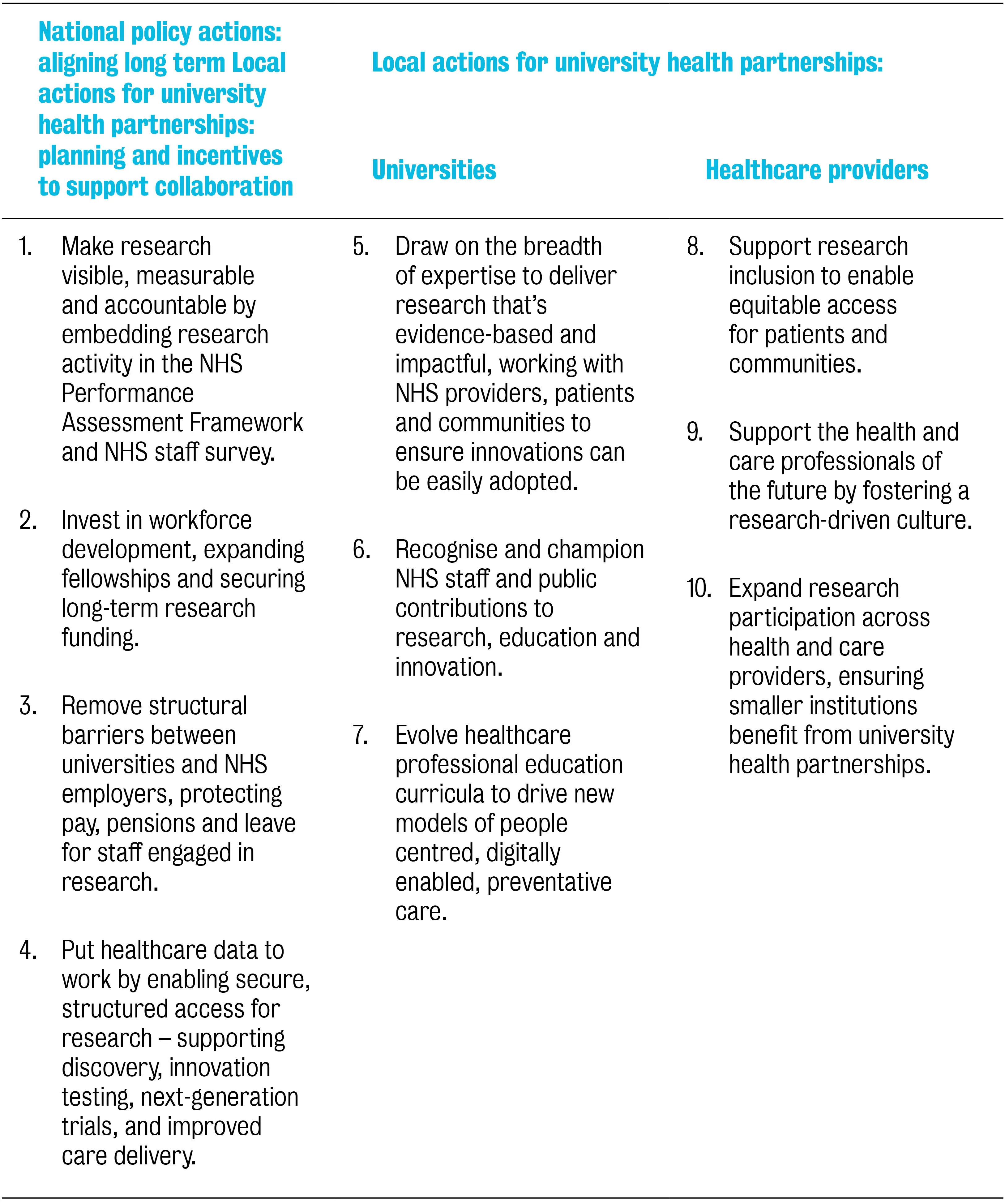20 June 2025
NHS research and innovation at risk if academic partnerships deprioritised, report warns
There is urgent need to prioritise university health partnerships now to deliver the 10 year health plan for the NHS, King’s Health Partners Executive Director says

Read the research
Authors: Professor Graham Lord, Senior Vice-President, Health & Life Sciences, King’s College London; Dr Catherine French, Director of Strategy, King’s Health Partners Research lead: Amy Clark, Senior Policy Fellow, the Policy Institute at King’s College London
The challenges facing healthcare systems are profound: rising demand, chronic illness, widening health inequalities and workforce burnout threaten to overwhelm them. At the same time universities, vital engines of discovery, innovation and professional training are under increasing strain. Yet, at the intersection of these two sectors lies one of our most powerful and underutilised solutions – university health partnerships.
The COVID-19 pandemic demonstrated the power of NHS, university and industry partnerships when faced with an urgent, common goal. However, these partnerships – built through decades of investment – now risk fragmenting just when they are needed most. Policy incentives are not always aligned, and the proportion of clinical academics (health professionals combining research with patient care) making up our medical workforce has declined by 27 per cent since 2012.
Yet the opportunities are huge. University health partnerships have driven immense benefit to society by accelerating health innovations, offering fulfilling careers and training generations of health professionals. They are now at the forefront of harnessing AI and unlocking data with the potential to transform health. Hospitals with high research activity consistently report lower mortality rates and improved patient survival. Medical research drives economic growth, delivering an annual return of 25p for every £1 invested. The UK is ranked third worldwide for research outputs in life sciences and MedTech innovation.
Partnerships play a critical role in delivering the NHS 10-year plan, by providing the evidence and environment to test what works (and what doesn’t) as the government seeks to implement the three shifts of care to community, analogue to digital and treatment to prevention.
However, research is at risk of slipping off the national NHS ‘to-do’ list: the 2025/26 NHS operational planning guidance, the most recent annual guide to national priorities, targets and financial frameworks for all NHS organisations to follow, does not mention research once.
With health and research prioritised in UK government investment plans, now is the time to recognise that university health partnerships are both urgent and vital, by aligning policy incentives and taking local action to embed research and education at the heart of health and care, securing a resilient, high-impact system fit for the future.
To recognise university health partnerships as urgent and vital we recommend:

University health partnerships have repeatedly proven their value, delivering faster innovation, better outcomes, stronger workforces and economic return. They are not an academic luxury, they are essential infrastructure for a healthcare system that must adapt, modernise and lead.
The evidence is clear – research-active organisations achieve better patient outcomes. Embedding research and education into NHS delivery is one of the most cost-effective, high-impact interventions that we can make. But, unless we act now, embedding research into performance frameworks, securing clinical academic careers, and strengthening collaboration between universities and providers, we risk losing critical momentum and capacity.
We have the blueprint, the evidence and the policy window. What’s needed is resolve.
To secure a resilient, equitable, and innovation-led NHS, we must stop treating university health partnerships as important but a second-order priority, and start treating them as urgent and vital.

